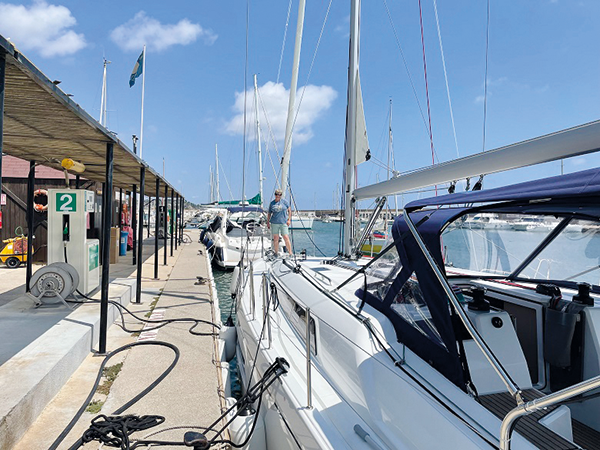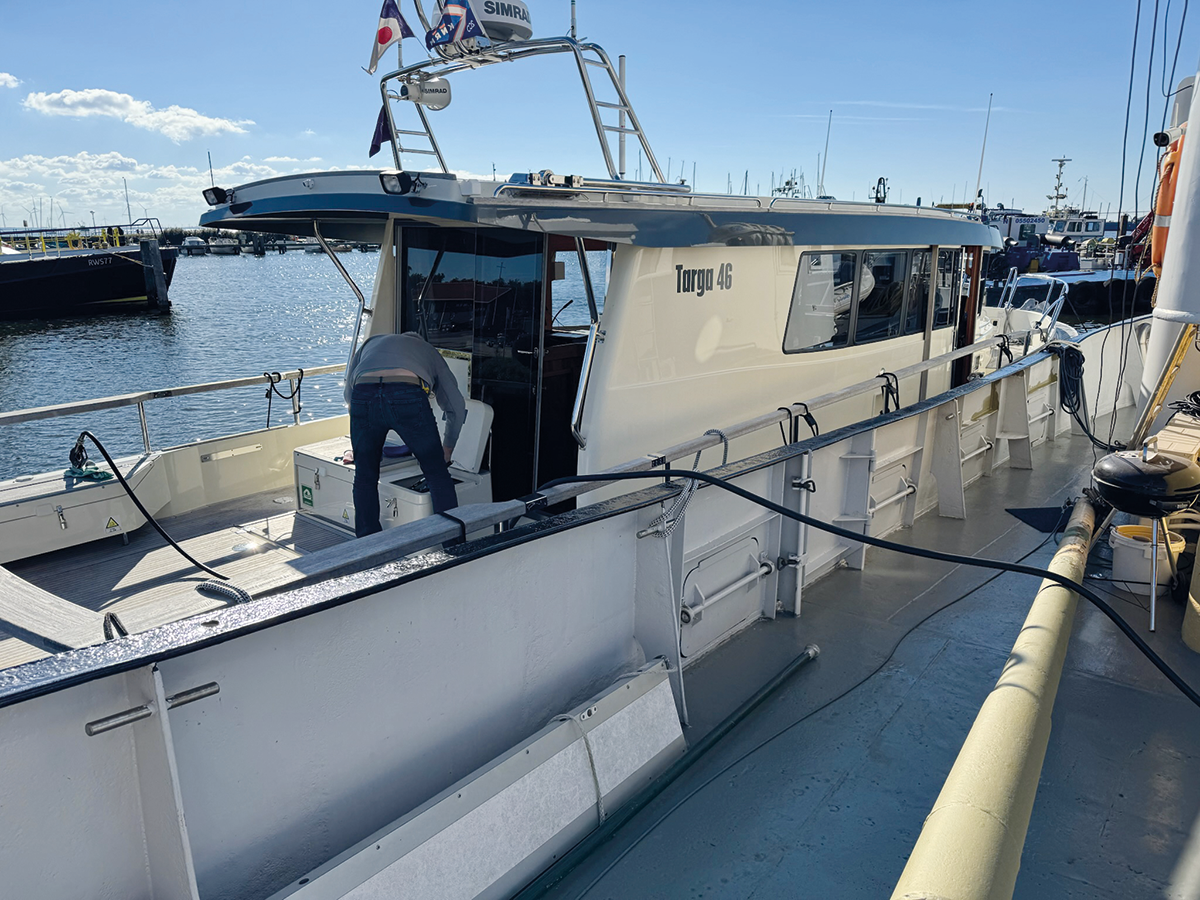Cruising Association technical volunteer and chartered engineer Malcolm Denham outlines the facts about Hydrotreated Vegetable Oil and its benefits for boaters.
Hydrotreated Vegetable Oil (HVO) has emerged as one of the most viable solutions for existing boats with diesel engines for a clear and safe route to greener boating in the UK.
Positive user stories, marine industry transition recommendations and engine manufacturer approval all back the conclusion that HVO, as a sustainable ‘drop in’ marine fuel, is the most suitable source of energy to facilitate the decarbonisation of our existing recreational cruising fleet.
HVO is a safe and stable biofuel which can be used in any concentration up to 100 per cent in diesel engines with no modifications, reducing CO₂ emissions and environmental impact of the fuel’s use and production. Currently, it is widely used in fleet trucks and is approved by most marine engine manufacturers, as listed by the CA at www.theca.org.uk/hvo-approved-engines.
First-Generation Biofuels and FAME
In the 1980s, diesel was all from fossil sources, but many oil companies experimented with vegetable oils as ‘extenders’. All vegetable oils are fatty acids, so esterifying produces Fatty Acid Methyl Ester (FAME), which, as a first generation biofuel, contains oxygen.
The introduction of biofuels in the 2000s was driven by targeted reductions in greenhouse gas (GHG) emissions. In 2004, EN590, the road diesel specification, had a maximum of 5 per cent FAME, increasing to 7 per cent maximum in 2009. Whilst some vehicles have run on 100 per cent FAME, it is nearly always used as a blending component in fossil derived diesel.
As FAME is hygroscopic, it absorbs water. Being vegetable based, it can contain bacteria, fungi and yeasts and microbes, different to those in fossil-based diesel. An increase in water absorption, the presence of oxygen and a greater variety of microbes make FAME diesel more susceptible to ‘diesel bug’, which forms at the fuel water interface. Poor ‘washing’ of the FAME before blending into diesel can lead to residual soaps, found as brown deposits blocking fuel filters.
What is HVO?
 Hydrotreated Vegetable Oil (HVO) is a second generation biofuel and not to be confused with hydrogenated vegetable oils which are saturated fats used in food production and bad for cholesterol.
Hydrotreated Vegetable Oil (HVO) is a second generation biofuel and not to be confused with hydrogenated vegetable oils which are saturated fats used in food production and bad for cholesterol.
HVO is produced from vegetable oil feedstocks, but the finished fuel contains no vegetable oils, esters or oxygen.
The production process occurs in stages and at high temperatures and pressures over a catalyst with hydrogen, leading to a paraffinic mineral diesel fuel of high purity which is clear and odourless.
Over the last five years, all UK-supplied HVO has been produced from waste, with GHG savings of 83 per cent to 91 per cent. Variations in the figure from year to year are due to different sources and volumes of the waste feedstock, hence manufacturers’ claims of up to 90 per cent CO₂ savings.
The high purity fuel has a high cetane number which benefits cold starting, noise and the absence of aromatic compounds reduces particulate emissions.
HVO is less susceptible to water uptake and contains no vegetable matter or oxygen which means it is far less likely to suffer from diesel bug. It is highly paraffinic and is therefore very stable and can be stored for long periods without deterioration.
HVO Joint Working Group
The potential of HVO to transform the recreational boating sector is promoted by the HVO Joint Working Group, a collaboration involving the Cruising Association, the Inland Waterways Association, the Royal Yachting Association and British Marine, with a mission to make HVO more accessible and affordable for recreational boaters.
The Group and the CA are raising awareness about HVO with the #GreenerBoatingDiesel campaign and working to change specific Government policies which are currently causing a barrier to the widespread supply and adoption of HVO in the sector.
See www.theca.org.uk/hvo-for-boats for more information.



















